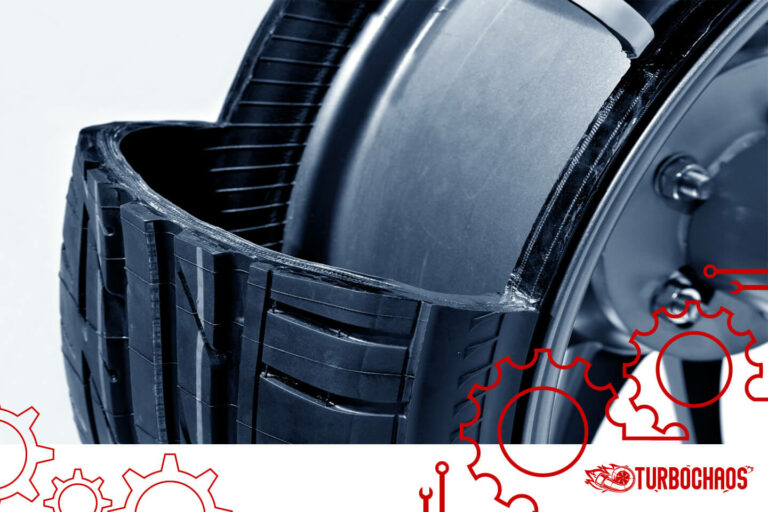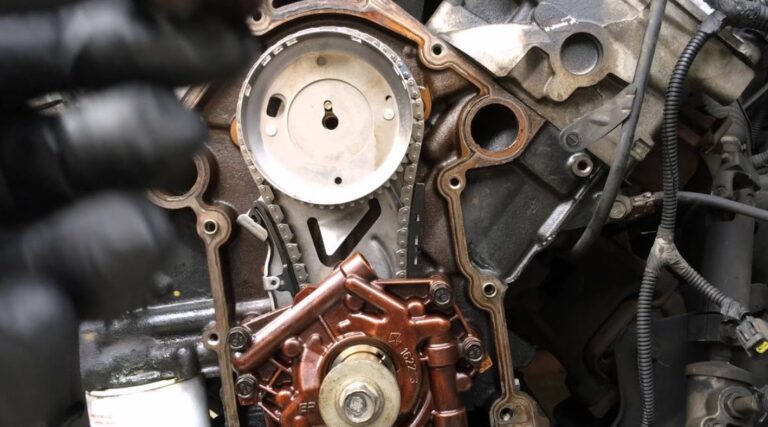Mercedes Benz MBE 4000 Engine Problems [Explained]
In this article, we’ll explain Mercedes Benz MBE 4000 Engine Problems. The Mercedes Benz MBE 4000 engine, renowned for its durability and performance, has been a cornerstone in the commercial trucking industry. Despite its acclaim, this engine has encountered various issues, which are significant for users and mechanics alike. Understanding these problems is crucial for effective maintenance and operation.
Key Takeaways
- Common issues include EGR system faults, oil leaks, and cooling system problems.
- Understanding these problems helps in efficient troubleshooting and maintenance.
- Regular maintenance is vital for prolonging engine life and performance.
Mercedes Benz MBE 4000 Engine Problems
The Mercedes Benz MBE 4000 engine, while robust, has its share of common issues. These problems, if not addressed promptly, can lead to significant engine damage and costly repairs.

EGR System Faults
The Exhaust Gas Recirculation (EGR) system in the MBE 4000 is prone to various issues. Problems such as clogged EGR valves and coolers can lead to reduced engine efficiency and increased fuel consumption.
Symptoms and Solutions
- Symptoms: Loss of power, increased fuel consumption, and engine warning lights.
- Solutions: Regular cleaning of the EGR valve and cooler, and replacing faulty components.
Oil Leaks
Oil leaks are a frequent concern in the MBE 4000 engine. These leaks often originate from gaskets and seals, which can deteriorate over time.
Identifying and Addressing Oil Leaks
- Detection: Regular inspection of engine components for signs of oil leakage.
- Repair: Replacing worn gaskets and seals to prevent further oil loss.
Cooling System Problems
The cooling system is critical for engine temperature regulation. Issues such as radiator leaks or malfunctioning thermostats can lead to overheating.
Managing Cooling System Health
- Monitoring: Regular checks of coolant levels and radiator condition.
- Maintenance: Timely replacement of coolant and repairing leaks.
Engine Performance and Fuel Efficiency
Performance and fuel efficiency are key aspects of the Mercedes Benz MBE 4000 engine. However, various factors can negatively impact these areas.

Factors Affecting Engine Performance
Several factors can degrade the performance of the MBE 4000, including clogged fuel injectors and air filters.
Enhancing Performance
- Optimization: Regular cleaning or replacing of air filters and fuel injectors.
- Tuning: Periodic engine tuning for optimal performance.
Improving Fuel Efficiency
Fuel efficiency is crucial for cost-effective operation. Proper maintenance and driving practices can significantly impact fuel consumption.
Strategies for Fuel Economy
- Best Practices: Adopting fuel-efficient driving techniques.
- Regular Maintenance: Ensuring engine components are in optimal condition.
Maintenance and Longevity of the MBE 4000 Engine
Proper maintenance is essential for the longevity and reliability of the Mercedes Benz MBE 4000 engine. Regular checks and timely repairs can prevent many common issues.
Preventive Maintenance Strategies
Adopting a preventive maintenance approach can significantly reduce the likelihood of engine problems.
Maintenance Tips
- Regular Inspections: Frequent checks of engine components.
- Timely Repairs: Addressing issues promptly to avoid escalation.
Extending Engine Life
The lifespan of the MBE 4000 engine can be extended through proper care and maintenance.
Longevity Practices
- Routine Servicing: Adhering to the manufacturer’s recommended service schedule.
- Quality Parts: Using high-quality parts and fluids for replacements and refills.
What Are Common EGR Issues in Commercial Diesel Engines?
Exhaust Gas Recirculation (EGR) problems are a frequent concern in commercial diesel engines. EGR systems, designed to reduce NOx emissions, can be prone to clogging and malfunctioning.
This can lead to a range of performance issues, including decreased fuel efficiency and increased engine strain. Regular maintenance of the EGR system, including cleaning of the valve and cooler, is essential to prevent these issues.

Clogged EGR valves are particularly problematic. They can cause reduced engine performance, increased fuel consumption, and even lead to engine failure in severe cases.
Symptoms of a clogged EGR valve include rough idling, engine misfires, and increased exhaust emissions. Solutions involve cleaning or replacing the EGR valve, which a qualified technician should do. Regular diagnostics can help in early detection and prevent more significant problems.
How Do Oil Leaks Affect Engine Performance?
Oil leaks in diesel engines, such as those used in heavy-duty commercial vehicles, are more than just a nuisance; they can significantly impact engine performance and longevity.
These leaks often occur from gaskets and seals, which can deteriorate over time due to the harsh operating conditions of commercial vehicles. The consequences of oil leaks include reduced lubrication, increased engine wear, and the potential for overheating.
Detecting and addressing oil leaks early is crucial. Regular inspections for signs of leakage can prevent minor issues from becoming major repairs. Indicators of oil leaks include visible oil on the engine or ground, a burning oil smell, and unusually low oil levels.
Once a leak is identified, replacing worn gaskets and seals is essential to maintain engine health. Using high-quality replacement parts is advisable to ensure longevity and reliability.
What Maintenance Strategies Prolong Engine Life?
Effective maintenance strategies are vital for prolonging the life of diesel engines in commercial vehicles. Regular maintenance prevents breakdowns and ensures that the engine operates at peak efficiency.
This involves routine checks of critical components like the air filter, fuel system, and cooling system. Timely replacement of these components can prevent larger, more costly issues.

Preventative maintenance is key. This proactive approach involves servicing the engine at regular intervals, following the manufacturer’s recommendations. It includes tasks like oil changes, filter replacements, and belt inspections.
Additionally, addressing minor issues as soon as they arise can prevent them from escalating into major problems. Investing in regular maintenance will extend the engine’s life, improve performance, and reduce the total cost of ownership.
How Does the Cooling System Impact Engine Health?
The cooling system plays a crucial role in maintaining the health of a diesel engine, especially in demanding commercial vehicle applications. An efficient cooling system prevents the engine from overheating, which can cause serious damage. Common issues with cooling systems include leaks, clogged radiators, and malfunctioning thermostats.
Regular checks of the cooling system can help identify problems early. This includes inspecting the radiator, hoses, and coolant levels. Leaks are a common issue and can lead to a drop in coolant levels, causing the engine to overheat.
Radiator clogs, resulting from debris or sediment buildup, can also impede cooling efficiency. Maintenance tasks like flushing the radiator and replacing the coolant at recommended intervals are essential for keeping the cooling system in good working order.
Conclusion
The Mercedes Benz MBE 4000 engine, while robust, requires careful attention to maintenance and troubleshooting. Addressing common issues such as EGR system faults, oil leaks, and cooling system problems is essential for maintaining engine health and performance.
Regular maintenance and adopting best practices are key to extending the engine’s life and ensuring optimal performance. The Mercedes Benz MBE 4000 remains a reliable choice for commercial transportation, provided it receives the necessary care and attention.
People Also Ask
How often should diesel injectors be cleaned or replaced?
The frequency depends on the engine model and usage. Typically, it’s recommended to check injectors at major service intervals and clean or replace them as needed. Regular checks can prevent performance issues related to fuel delivery.
What are common causes of reduced power in diesel engines?
Causes include clogged fuel injectors, air filters, or exhaust systems, problems with the turbocharger, and issues in the fuel delivery system. Diagnosing the exact cause requires a professional inspection and potentially a diagnostic scan.
How does poor fuel quality affect diesel engines?
Poor fuel quality can lead to deposits in the fuel system, reduced efficiency, increased emissions, and potentially serious engine damage. Using high-quality diesel fuel and regular fuel system maintenance is important for engine health and performance.
What should be done if a diesel engine overheats?
Immediately stop the vehicle and turn off the engine to prevent further damage. Check for visible issues like coolant leaks or damaged hoses. Do not open the radiator cap while the engine is hot. It’s advisable to consult a professional mechanic for a thorough inspection and repair.

Welcome to the exhilarating world of Matt Rex, a professional car racer turned renowned vehicle enthusiast. Immerse yourself in his captivating blog as he shares heart-pounding adventures, expert reviews, and valuable insights on cars, trucks, jets, and more. Fuel your passion for speed and discover the beauty of vehicles through Matt’s engaging stories and meticulous expertise. Join the ever-growing community of enthusiasts who find inspiration and expert advice in Matt Rex’s blog—a digital hub where the thrill of speed meets the pursuit of knowledge.


![How To Identify A ZZ4 Engine? [Here Are Some Tricks]](https://www.turbochaos.com/wp-content/uploads/2023/12/How-To-Identify-A-ZZ4-Engine-768x538.jpg)




